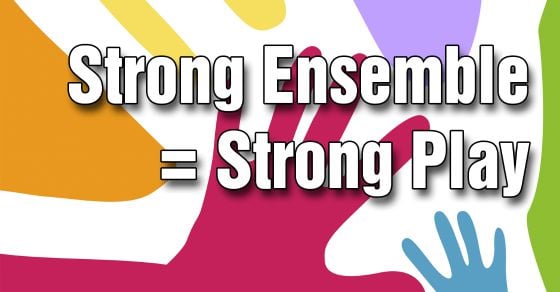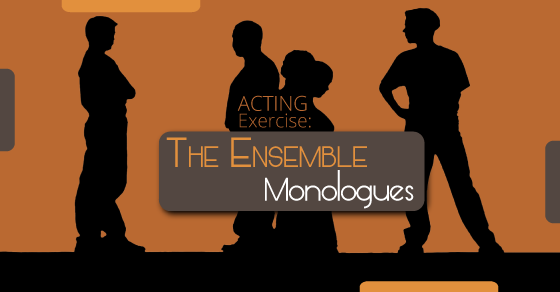Creating A Strong Ensemble
The ensemble of your play is more than just set dressing. They populate the world of the play.
A strong ensemble is the same as a strong cast – actors who play well-defined characters. Every actor in the ensemble should have an individual character.
Sometimes it’s hard for your ensemble actors to believe they’re as important as the leads. It’s up to you to create a full theatrical experience for your ensemble. In the end, your production will reap the benefits.
The Character Profile
Every ensemble member should complete a character profile. Especially if the ensemble doesn’t officially appear in the script. Ensemble actors should know their name, where they live, what their family is like, their secrets and memories. The more your ensemble creates dimension to their characters, the more alive they’ll appear on stage.
Where do they get their profile information if their characters aren’t in the script proper? From their own imagination. There are boundaries, of course. The characters they create have to fit within the world of the play. If you’re playing a Shark in West Side Story, for example, it wouldn’t make sense to have the name Nostradamus and live in a spaceship. But other than that, the sky’s the limit.
Ensemble Building Exercises
In every rehearsal, you should do exercises that are solely for the benefit of building ensemble. The closer your ensemble, the more they’ll work together as a team. If your ensemble feels they are a part of your process, it will go a long way to helping them feel integral to the production.
The Machine
Everyone works together to make a machine. One person enters the space. The start making a noise and a gesture. A second person joins in. They make a complimentary noise and gesture. (The second person has to find a way to fit with the first person, it has to be cohesive). Each person in the group adds their own noise and gesture until the entire group is involved. At that point, you become the conductor. You signal the machine to speed up, to slow down, and perhaps to break down. Try the exercise again, only this time tell the group what problem their machine has to solve. Repeat the process of adding a noise and gesture one by one, but with a specific purpose in mind.
Relationships
We have relationships with everyone we encounter, everything we see. Part of bringing the ensemble to life, making them three-dimensional characters, will be helped by defining those relationships.
Attraction/Repellant
Two excellent questions to ask each member of your ensemble are “Who are you attracted to?” and “Who do you want to stay away from?” The act of attraction and being repelled can give your ensemble a lot to do in a show. It can give them action and movement. Who on stage are they trying to get close to? Who are they trying to stay away from? It can give them an emotion to play with. Remind your actors to strive for variety. Not every male ensemble member should be attracted to the ingenue.
It’s easy to neglect the ensemble when you’re in the middle of an intense rehearsal. By planning to incorporate a few simple exercises, giving your ensemble characters depth, and asking a couple of questions, your strong ensemble will build itself.



